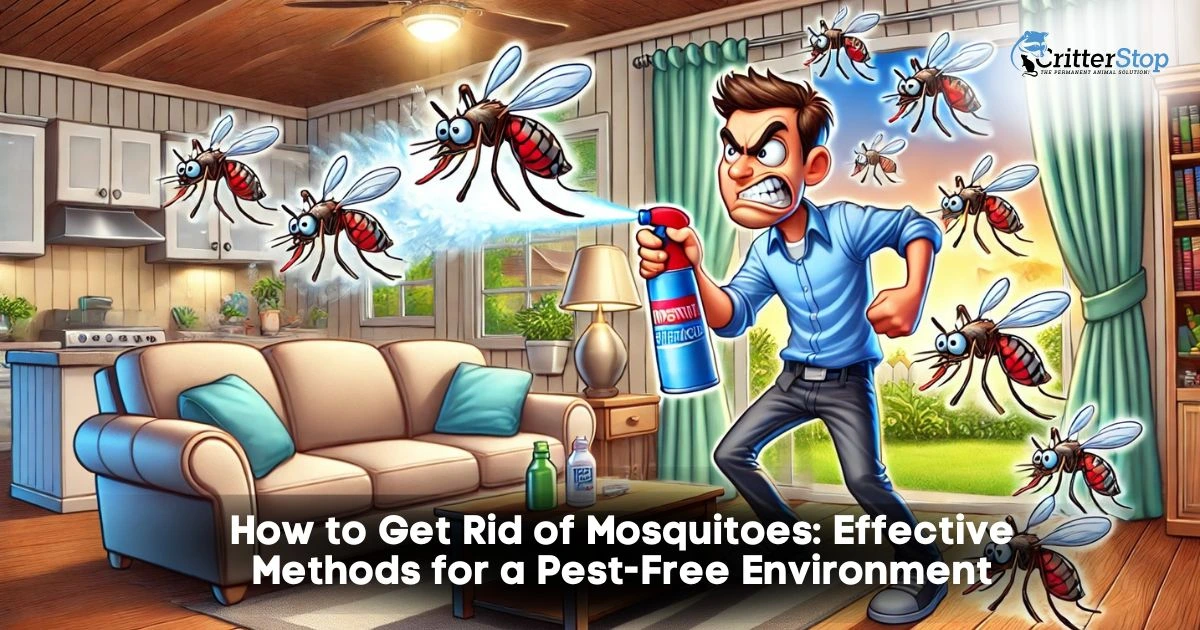
Mosquitoes can make any outdoor experience frustrating. To effectively get rid of them, standing water must be eliminated, repellent plants must be used, and various traps and sprays must be employed. Understanding their breeding habits and preferred environments is crucial for any effective control strategy.
Implementing simple changes around the home and yard can significantly reduce mosquito populations. Techniques such as using citronella candles, installing screens, and maintaining landscaping can relieve these pests.
Exploring the best ways to address a mosquito problem can enhance outdoor enjoyment and reduce the risk of diseases associated with these insects. Taking proactive steps creates a more comfortable and safer space.
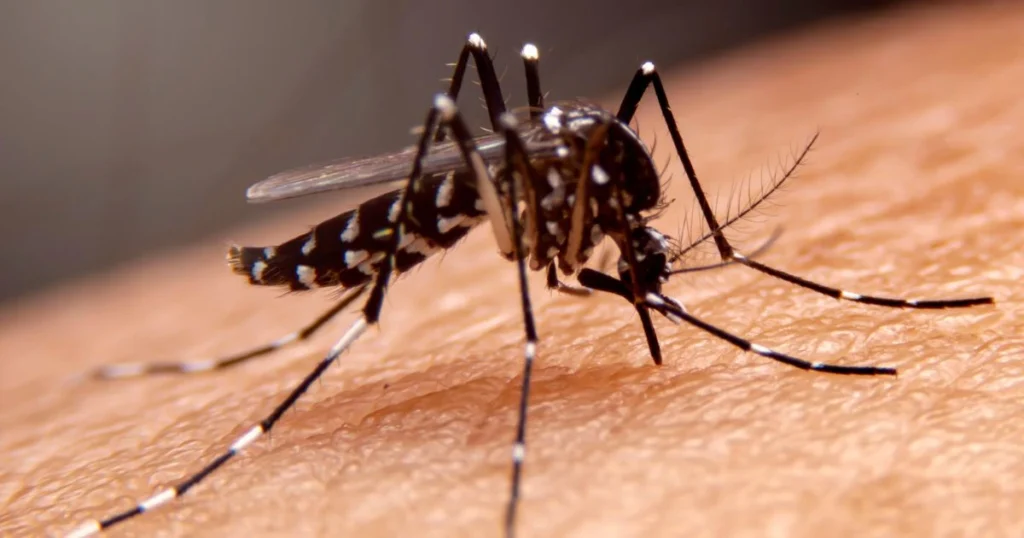
Mosquitoes are persistent pests with specific life stages and environmental preferences that allow them to thrive. Recognizing their lifecycle and the conditions that support their breeding can aid in effective control measures.
Mosquitoes undergo four life stages: egg, larva, pupa, and adult. The female lays eggs in stagnant water, often in clusters. These eggs hatch into larvae, which feed on organic matter and inhabit water sources. After several molts, larvae transition into pupae, a non-feeding stage where they prepare for adulthood.
Adult mosquitoes emerge from pupae, typically within a few days. They primarily feed on nectar but require blood for reproduction. Mating occurs shortly after emergence, and females can lay hundreds of eggs during their lifespan, leading to rapid population growth.
Mosquitoes thrive in warm, humid environments. They prefer standing water for breeding, with ideal conditions including puddles, ponds, and marshes. Additionally, vegetation provides shelter and resting places.
Key factors that promote mosquito presence include:
Reducing standing water around properties is vital for mosquito control. Implementing strategies such as regular drainage and using mosquito repellents can effectively reduce the population.

Effective preventative measures are essential for mosquito control. Individuals can significantly reduce mosquito presence by eliminating breeding grounds, using natural repellents, and creating physical barriers.
Standing water is a breeding ground for mosquitoes. Therefore, it is crucial to inspect outdoor areas regularly for stagnant water sources.
By taking these steps, they can reduce mosquito reproduction sites and keep the population in check.
Landscaping choices can influence mosquito activity. Select plants known for their repellant properties.
Using these plants enhances the landscape and contributes to a mosquito-free environment.
Creating physical barriers is essential for personal protection against mosquitoes. Screens can block entry points when installed on windows and doors.
These barriers can create a safer outdoor experience while significantly reducing human exposure to mosquitoes.
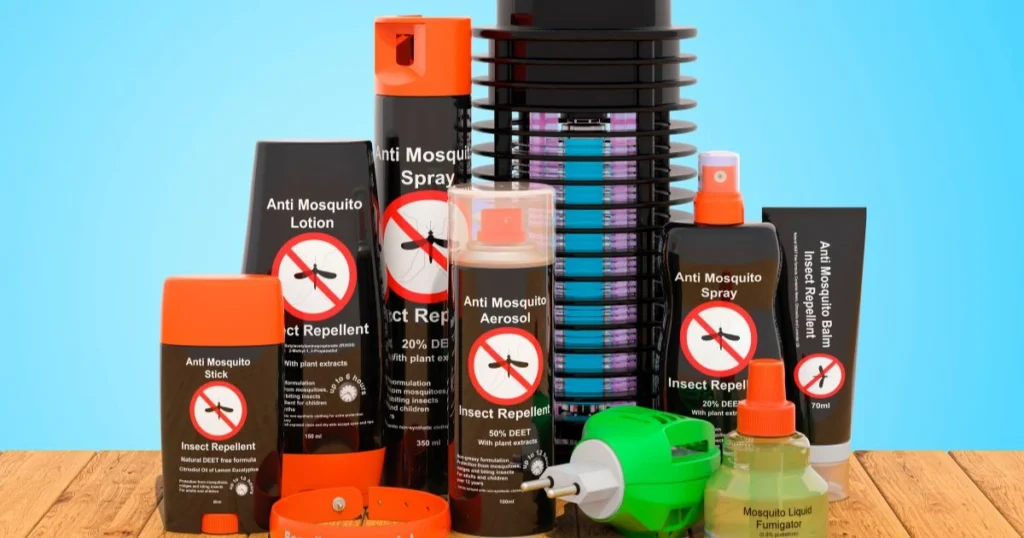
Chemical repellents are effective tools for managing mosquito populations. They come in various forms, including topical applications for personal use and area sprays for outdoor environments.
Topical applications are designed for direct skin use and typically contain active ingredients such as DEET, picaridin, or IR3535. Each ingredient offers varying levels of protection.
To apply, follow the instructions carefully. Apply a thin layer and avoid areas around the eyes, mouth, or broken skin. Reapply as needed, especially in humid or heavily infested areas.
Area sprays and foggers target larger spaces to reduce mosquito presence. These products usually contain synthetic insecticides like permethrin or pyrethroids.
When using area sprays, choose calm days to avoid drift and ensure maximum effectiveness. Always follow label directions and safety precautions for safe application in residential spaces.
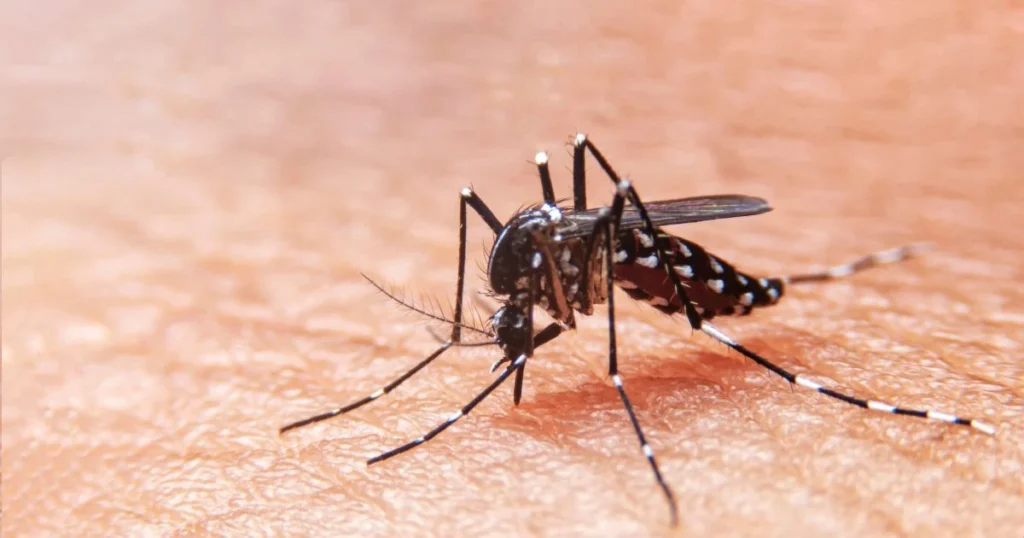
Many seekers of mosquito control prefer natural and home remedies. These methods can be highly effective while avoiding synthetic chemicals. Below are viable solutions using essential oils and herbal plants known for their mosquito-repelling properties.
Essential oils are potent alternatives to chemical repellents. Citronella, eucalyptus, and lavender are particularly effective. A user can create a homemade spray by mixing 10-15 drops of essential oil with water in a spray bottle.
Popular essential oils for repelling mosquitoes:
Users should apply this mixture liberally to exposed skin and clothing. Additionally, diffusing essential oils indoors can create a less inviting atmosphere for mosquitoes. Regular application is key for maintaining effectiveness.
Planting certain herbs around homes can naturally deter mosquitoes. Basil, marigold, and catnip are effective choices known for their repellant qualities. Keeping pots of these herbs near doorways and windows can help reduce mosquito presence.
Plants to consider for mosquito control:
Furthermore, crushing the leaves of these herbs and rubbing them on the skin can enhance repellent effects. This method is simple and offers an organic way to keep mosquitoes at bay. Regularly tending to these plants will maximize their effectiveness in the area.
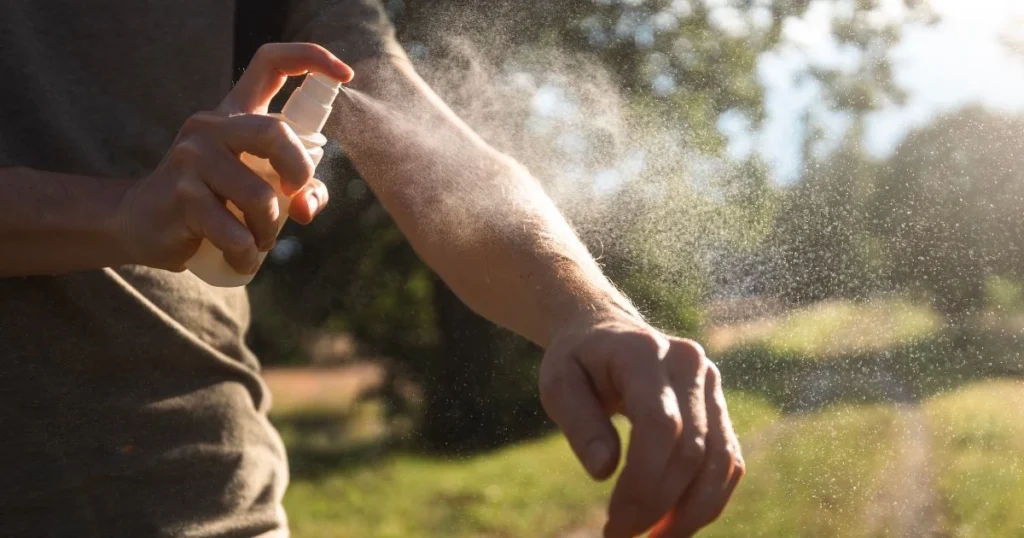
Various mechanical and electronic devices can significantly help eliminate mosquitoes. These solutions offer practical methods to reduce mosquito populations and protect indoor and outdoor spaces.
Mosquito traps attract and capture mosquitoes using different strategies. Many traps lure these insects with UV light, heat, or carbon dioxide. Once close, a fan sucks them into a collection chamber.
There are various types of traps, including:
Regular maintenance is essential. Emptying and cleaning traps regularly ensures consistent performance. Mosquito traps can effectively rid areas of mosquitoes when positioned correctly and used consistently.
Ultrasonic repellers work by emitting high-frequency sound waves that are uncomfortable for mosquitoes. These devices are typically portable and can cover a reasonable range.
The key features include:
While the scientific community has mixed opinions on their effectiveness, many users report noticeable reductions in mosquito activity. They can serve as a supplementary method to enhance comfort in mosquito-prone areas.
Electric zappers kill mosquitoes upon contact with electric grids. Most models attract mosquitoes with UV light, making them a common choice for outdoor areas.
Features to consider include:
Electric zappers can effectively reduce mosquito numbers. They are particularly effective in open spaces during warm months. When used alongside other mosquito management strategies, electric zappers enhance the overall efficacy of pest control efforts.
Effective personal protection involves strategic clothing choices and the use of barriers to minimize mosquito interaction. Selecting the right materials and utilizing protective tools can significantly reduce the likelihood of bites.
Wearing the right clothing is crucial when trying to avoid mosquito bites. Lightweight, long-sleeved shirts and long pants create a physical barrier between the skin and insects.
Fabric Types:
Insect-repellent clothing, treated with permethrin, offers additional defense. Ensure clothing fits loosely, as tighter garments may not provide the same level of protection. Accessories like hats and socks also contribute to safety.
Netting and coils provide a versatile approach to mosquito control. Insect nets can be draped over beds and patios, creating a protective barrier. These nets should be fine enough to keep mosquitoes out but allow airflow.
Coils: Mosquito coils emit smoke that repels insects. Place them in outdoor areas to make the environment less hospitable for mosquitoes.
For best results, position them away from living spaces to avoid inhalation of smoke. Both methods can enhance personal safety when spending long periods outdoors.
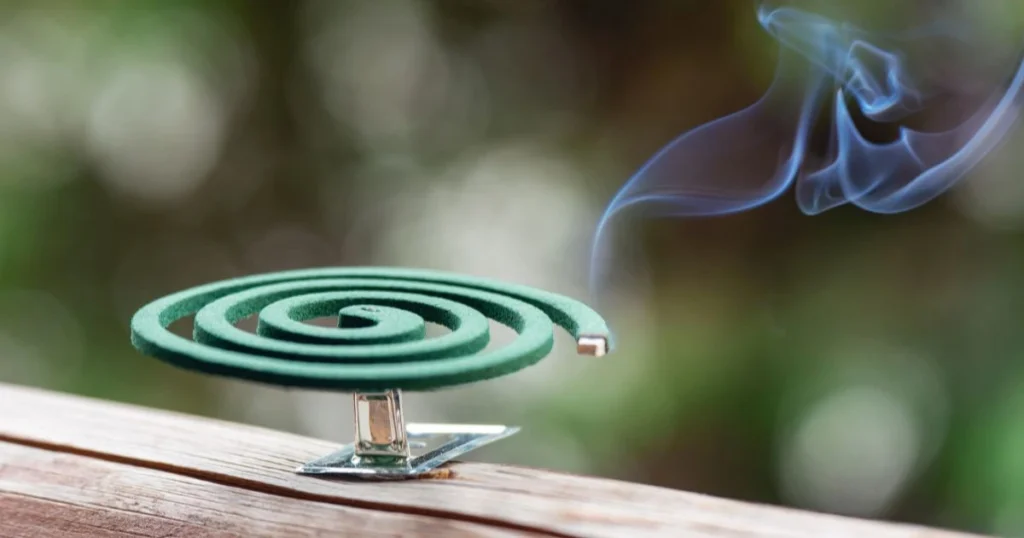
Knowing when to call in professionals for mosquito control can save you time and ensure the problem is handled effectively. If you notice persistent mosquito activity despite your best DIY efforts, or if their numbers seem to increase rapidly, it’s time to seek expert assistance. Other signs, such as frequent bites indoors, standing water sources that are difficult to eliminate, or concerns about mosquito-borne illnesses, also signal the need for professional help.
Professional mosquito control services can identify breeding grounds, apply targeted treatments, and implement preventative measures to keep your home and yard mosquito-free.
Critter Stop, a trusted name in humane wildlife removal and pest control, offers expert solutions tailored to your needs. Call Critter Stop at (214) 234-2616 for a free inspection and take the first step toward regaining your outdoor space. Known for its fantastic reputation and glowing customer reviews, Critter Stop is dedicated to providing high-quality work and exceptional customer service. Let their experts provide a long-lasting solution to your mosquito problem today!
Infestation levels can vary widely. If an individual notices large numbers of mosquitoes despite taking control measures, it may indicate a significant problem.
It is essential to assess the situation by checking for breeding sites around the home, such as standing water, and monitoring mosquito activity during peak times—dawn and dusk.
If the population seems to increase rapidly or these insects persist despite DIY attempts, seeking professional help is advisable. Professionals can employ targeted treatments and techniques to eliminate small and big mosquitoes, ensuring a quicker resolution.
Creating and maintaining an environment that deters mosquitoes requires consistent effort and awareness. Regular checks and updated knowledge on control techniques are crucial for effective mosquito management.
Maintaining a mosquito-free space starts with a systematic checklist. Key areas to inspect include:
Implementing this routine will greatly reduce the chances of mosquitoes invading the environment.
Knowledge about mosquito control can enhance efforts to keep them at bay. Various strategies can be employed to manage mosquito populations effectively:
Staying informed empowers individuals to implement effective techniques and stay proactive against mosquitoes.
The following questions address common concerns related to mosquito control, covering natural remedies, effective indoor methods, and professional services. Each query provides concise guidance for effectively tackling mosquito problems.
Natural remedies such as citronella candles, neem oil, and garlic spray can help deter mosquitoes. Planting mosquito-repellent plants like lavender and basil may also reduce their presence.
For indoor mosquito control, installing window screens, using mosquito nets, and employing essential oil diffusers can be effective. Electric traps and insecticide sprays designed for indoor use can also reduce populations.
Addressing the underlying causes is crucial. To manage recurring infestations, regularly eliminate standing water, seal entry points, and use continuous insecticide treatments.
Professional pest control services offer comprehensive inspections and tailored treatments. To effectively manage mosquitoes, they may use a combination of sprays, traps, and ongoing maintenance plans.
Removing pooled water and using mosquito dunks during the rainy season can help. Regularly check gutters and drains to promote proper water flow and prevent breeding sites.
DIY methods include creating traps with sugar water or yeast, using essential oils in sprays, and deploying fans to disrupt mosquito flight. Keeping yards tidy also reduces resting spots.
To eliminate mosquitoes in standing water, empty containers and treat the remaining water with larvicides. Regular maintenance is key to preventing future breeding.
Simple tips include keeping doors and windows closed, using screens, and employing indoor sprays. Maintaining low humidity levels can also discourage mosquito activity.
During outdoor events, use citronella candles and torches. Providing fans can disrupt their flight, while wearing protective clothing and using repellents on the skin also helps.
Using plug-in insect repellents and keeping windows closed can reduce mosquito presence in small spaces. Regular cleaning to remove hidden breeding sites is also effective.
Trimming shrubs and bushes to reduce foliage density can help. Applying insecticide sprays designed for outdoor use can target mosquitoes hiding in dense vegetation.
Natural repellents such as essential oils, citronella plants, and preventing standing water can be effective. These methods reduce mosquito populations without chemical exposure.
To address mosquitoes in basements, eliminate moisture sources and use dehumidifiers. Sealing cracks and using targeted sprays can also help manage populations.
Effective methods include sealing entry points, using indoor insecticide sprays, and maintaining cleanliness to remove potential breeding sites.
To manage mosquitoes near water sources, regularly remove debris and vegetation. Using biological controls such as fish can help reduce larvae populations in ponds.
Using fans, citronella candles, and strategically placed plants can deter mosquitoes. Keeping the area clean and regularly checking for standing water is also important.
To quickly manage mosquitoes for an event, set up fans, use bug zappers, and light citronella torches. Providing guests with repellents can also enhance comfort.
In a child-friendly environment, opting for natural repellents, ensuring proper drainage, and using screens are safe methods. Regular cleaning and maintenance further reduce risks.
Using insect sprays targeted for their size and breeding habits can effectively eliminate larger mosquitoes. Maintaining outdoor areas minimizes their hiding places.
Eco-friendly mosquito control includes using natural repellents, removing standing water, and planting mosquito-repelling plants. Biological controls can also minimize their population sustainably.
In humid climates, regularly eliminating stagnant water and using natural barriers can help. Maintaining airflow and humidity in living spaces is also beneficial.
Rotating different types of insecticides can be effective for resistant mosquitoes. Integrated pest management strategies that include non-chemical methods also provide better control.
Using foggers or targeted sprays can quickly reduce mosquito populations. Immediate elimination of standing water is crucial to prevent future infestations.
Sticky traps and electric insect killers can be effective indoors for small mosquitoes. However, keeping windows screened and eliminating breeding sites is essential for long-term control.
Visit our Critter Library and learn more about our furry friends